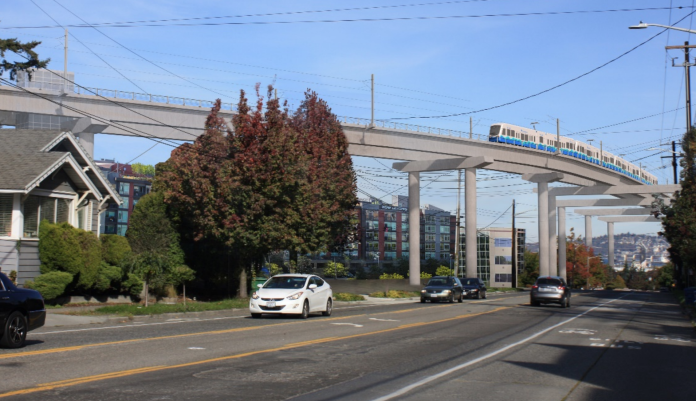
King County Councilmember Teresa Mosqueda is pushing the Sound Transit board to take action to modify the pathways on the table for Sound Transit’s planned light rail extension to West Seattle in order to spare several small businesses in North Delridge that would otherwise be displaced by the project. This week she went directly to the board’s system expansion committee to provide public testimony, an unusual move that came only after meeting with Sound Transit staff and apparently meeting an impasse on what she describes as small “refinements.”
Approved in the Sound Transit 3 ballot measure in 2016, West Seattle Link would add three stations on the peninsula — Delridge, Avalon, and Alaska Junction — and is currently projected to open in 2032. The trackway that Mosqueda and local business owners are raising questions about is north of the planned station in North Delridge, an area also known as Pigeon Point.
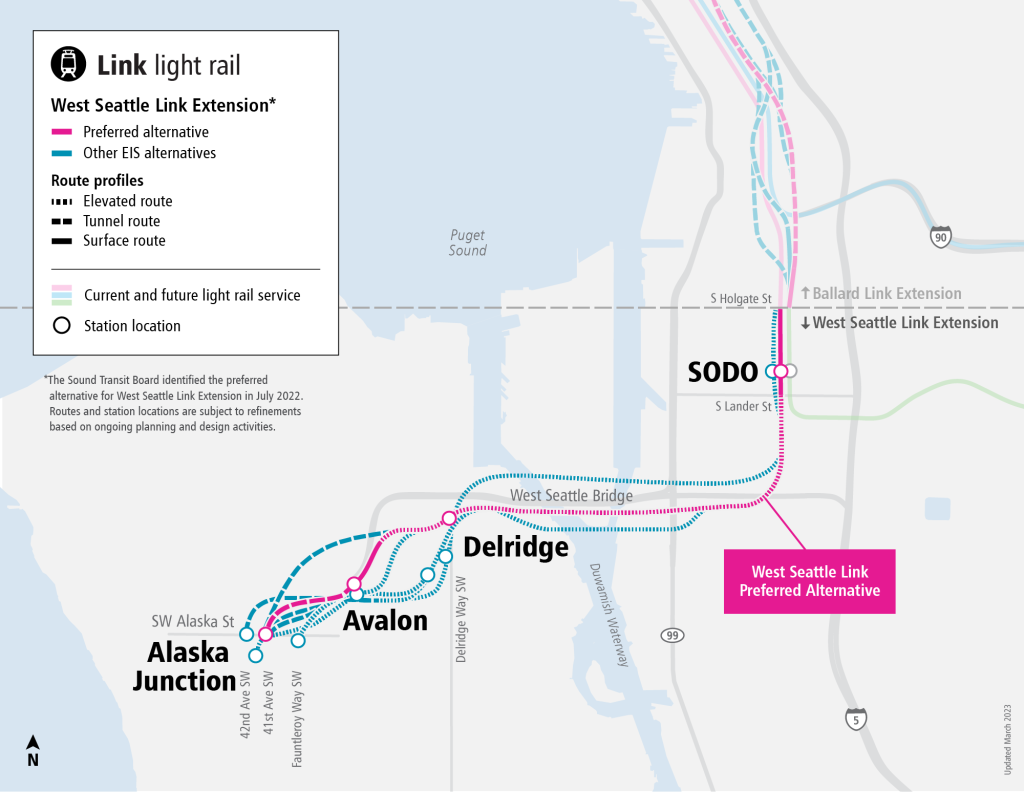
Sound Transit is only a few months away from asking its board to approve a final alignment for the West Seattle project, after the agency studied eight different alternative pathways in the Delridge area as part of its draft environmental impact statement (DEIS), released in 2022. Unlike Ballard Link, which is delayed and mired in indecision and further studies, West Seattle Link is moving ahead in its planning process with a Final EIS.
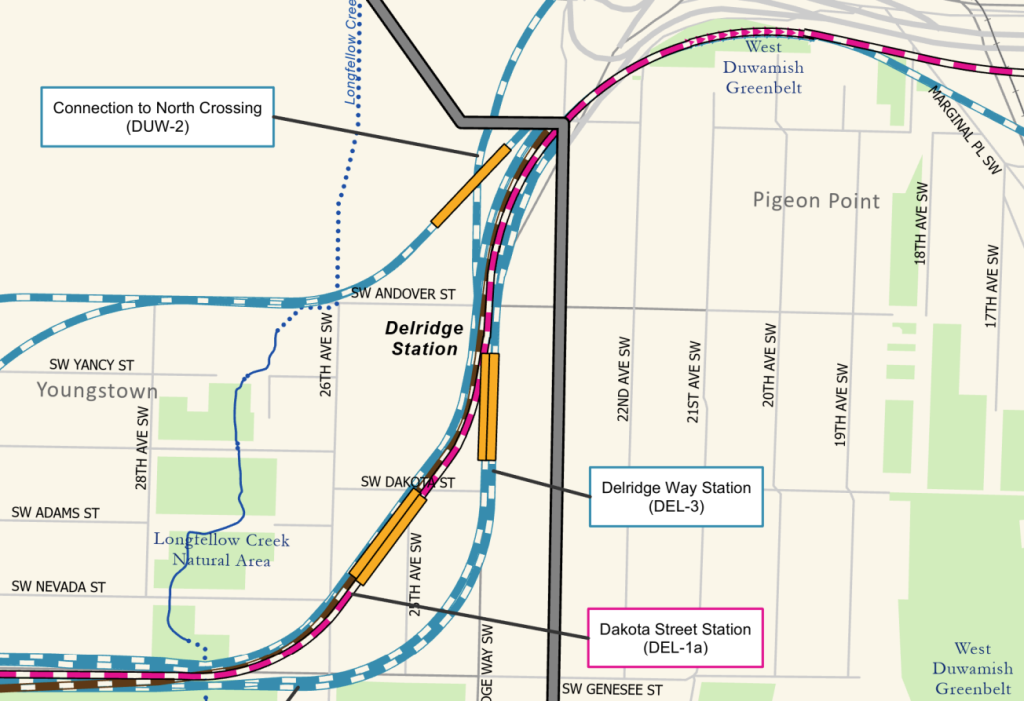
Last month, the board gave the go-ahead to start acquiring properties that will likely be needed under most alternatives, a list which includes a large commercial center home to numerous businesses including Alki Academy, one of the largest daycare facilities in the area. Other businesses potentially being eyed for acquisition include the all-ages music venue Skylark Cafe, Ounces taproom, and at least part of the property home to the West Seattle Health Club.
“I envision a Sound Transit location that complements the childcare and the gym, so people can drop their kiddos off or go work out in the morning, get off Sound Transit and go to their local restaurant and the gym afterwards, pick up their kids from school where kids can get music lessons and go to all-age theaters,” Mosqueda told the Sound Transit board’s system expansion committee Thursday. “I am asking you, at the very least, to consider refinement options that could also save money and save businesses.”
Mosqueda asked the board to study moving the planned pillars for the track guideway so that they utilize more street right-of-way and less private land, potentially sparing the need for partial acquisitions like the pool at West Seattle Health Club. She also asked for the location of Delridge Station to shift by around 100 feet so that businesses like the Skylark Cafe could remain in place. Many of the potential properties that Sound Transit could procure and use in the area are either vacant or include large surface parking lots. A letter Mosqueda sent directly to the board included specifics on potential refinements that could be studied.
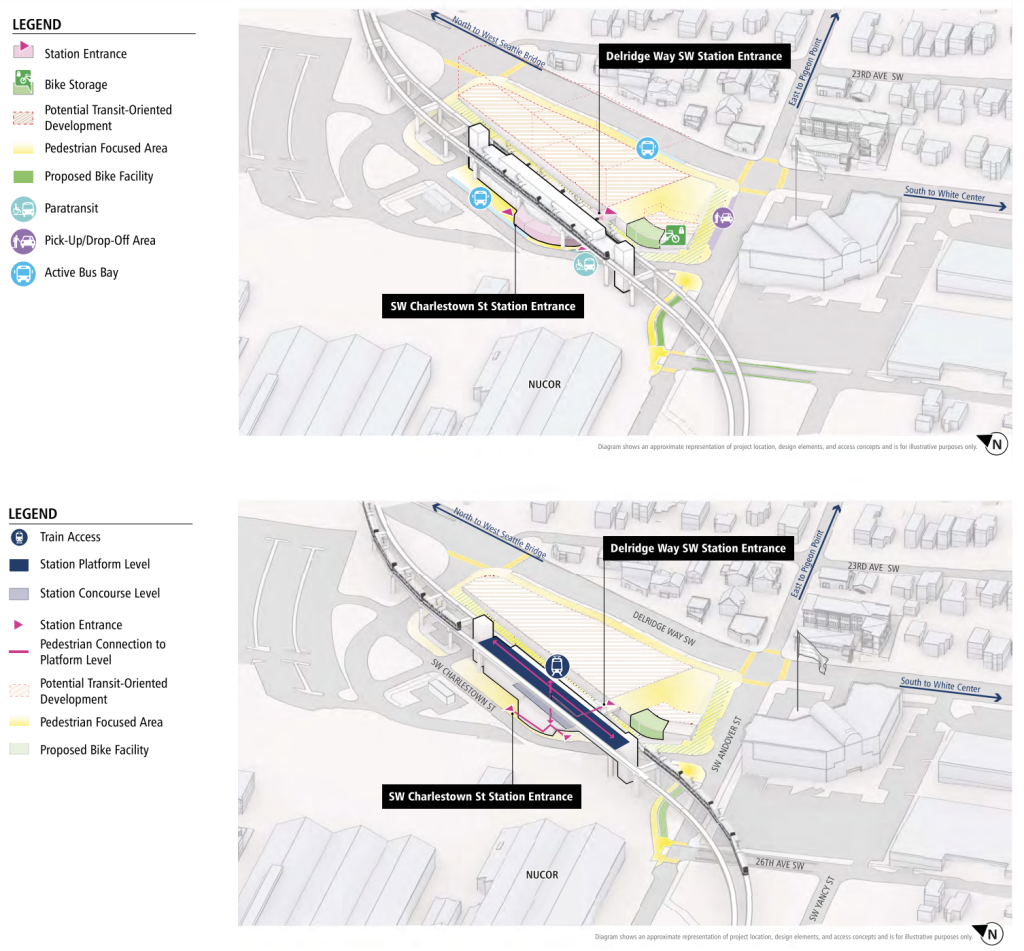
But it’s not clear the degree to which moving a station would actually reduce the need for property acquisition — Sound Transit regularly needs to acquire more land for construction than it will need once a project is completed. And the request, coming at the eleventh hour, has the potential to disrupt the current timeline for the project and further a precedent when it comes to future Sound Transit projects.
In late March, King County Executive and Sound Transit board chair Dow Constantine (who was born and raised in West Seattle) spoke to the need for property acquisitions ahead of the vote to move forward them — though the early purchase only included three properties in West Seattle and didn’t include ones home to Ounces or Skylark.
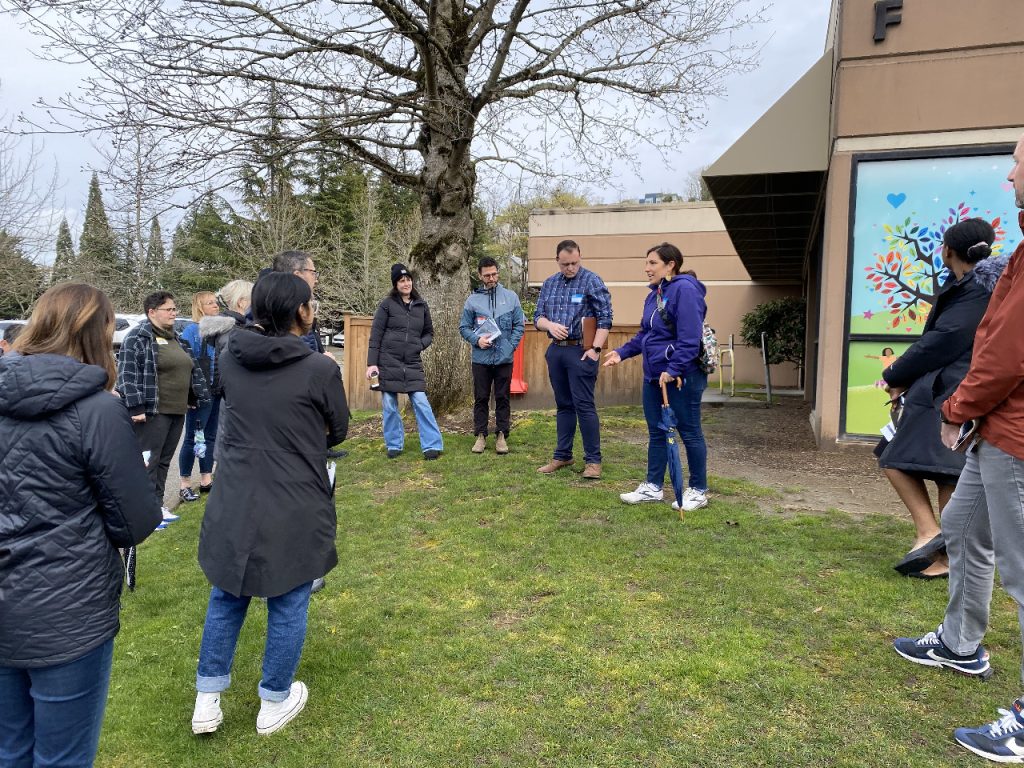
“Seattle is a very densely developed city and inevitably, there are going to be businesses, residences, property owners impacted by public works, especially one as extensive as the creation of light rail system,” Constantine said. “Sound Transit is right, I think, we are right, to try and work with people early if they want to relocate their business, having a longer runway is better than having to do it in a hurried fashion.”
Also voting to move forward with early property acquisitions was Seattle Mayor Bruce Harrell, who pledged assistance from the Seattle Department of Transportation (SDOT) and other City departments.
“I want to reiterate that both our SDOT department and in particular our Office of Economic Development [department] stand at the ready to assist these small businesses,” Harrell said ahead of the vote, seeming to acknowledge the necessity of the acquisitions. Seattle’s other Sound Transit board member, Councilmember Dan Strauss, was absent from that vote, but he did approve the motion in committee earlier that month.
Mosqueda told The Urbanist that Sound Transit met with her and affected business owners in late March, but that none of the staff present brought up the fact that the board was set to approve early acquisitions. “It was very clear in the walking tour that we had with the small businesses: every single person, every single business wants Sound Transit in the neighborhood — they want it in that pocket right there, absolutely,” Mosqueda said. “There’s just a lot of concern; people cannot square how you put the station there when there are empty parking lots literally across the street.”
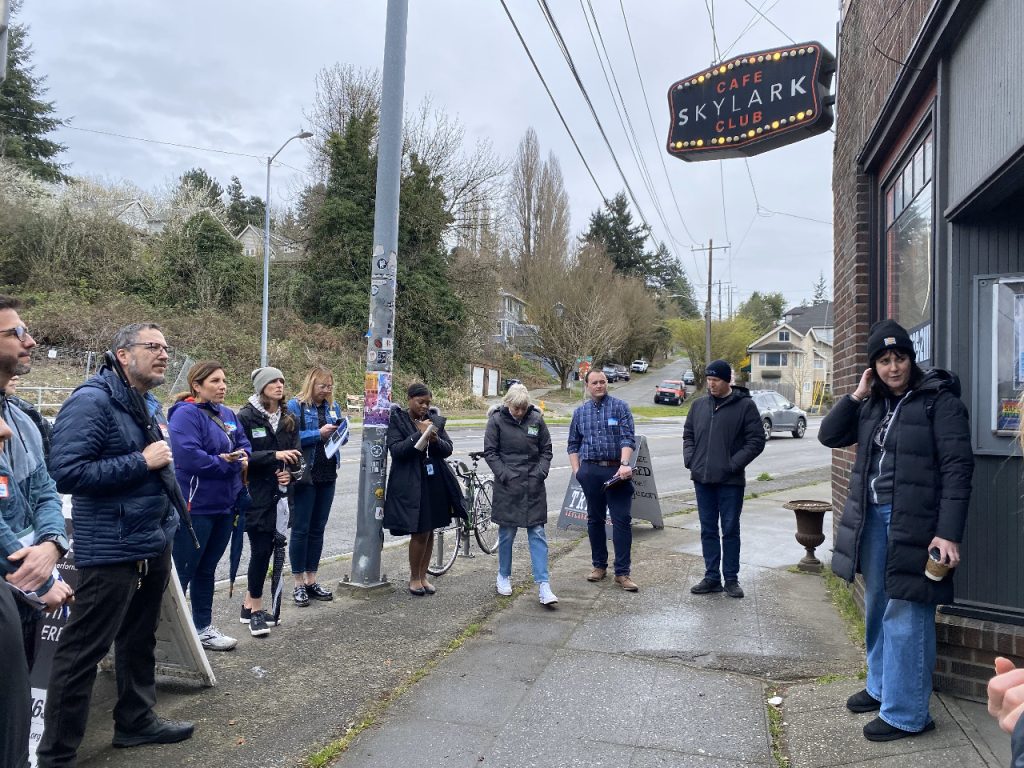
Business owners in the area have already started sounding the alarm that the writing is on the wall for their acquisition. “In light of recent developments, including several meetings and the acquisition vote for surrounding properties, it has become evident that the impending Light Rail expansion to West Seattle is proceeding as planned, with Sound Transit offering no additional support beyond what has already been presented,” the owners of the Skylark Cafe wrote to their mailing list earlier this week. “We harbor deep concerns (to put it mildly) that the proposed relocation package will significantly fall short of the resources necessary for a successful transition to another space in West Seattle.”
But Mosqueda said she’s optimistic that the potential refinements can at least be studied before a final decision on a route is made, even if it means pushing out the board vote set for this summer.
“You can see how this could be a value add, to getting people to leave their cars at home and have that be a destination location,” Mosqueda said. “Instead of wiping out the only North Delridge business hub. There is nothing else that is walkable in that neighborhood if they take out the West Seattle Health Club, and those five or six businesses along North Delridge in addition to the childcare.”
Ryan Packer has been writing for The Urbanist since 2015, and currently reports full-time as Contributing Editor. Their beats are transportation, land use, public space, traffic safety, and obscure community meetings. Packer has also reported for other regional outlets including BikePortland, Seattle Met, and PubliCola. They live in the Capitol Hill neighborhood of Seattle.

